Ali Aarrass at the Festival of Social Justice (UK Amnesty international 16/04 – 31/05)
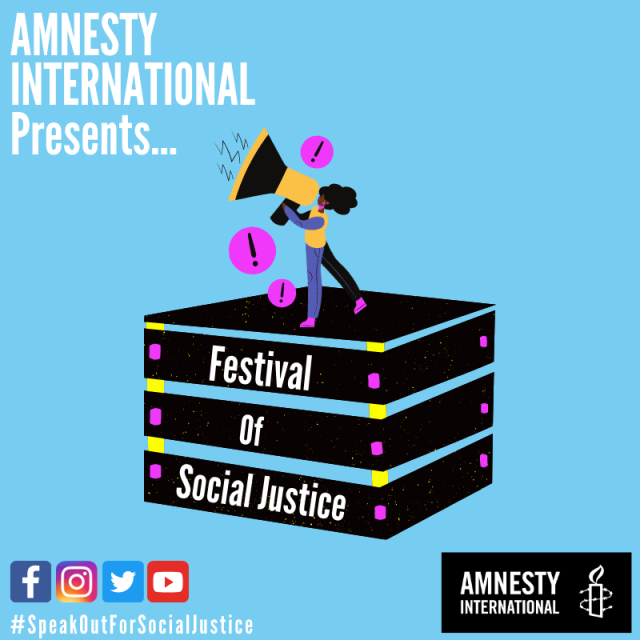
Words and Stories Part 1 (including Ali)
https://www.youtube.com/watch?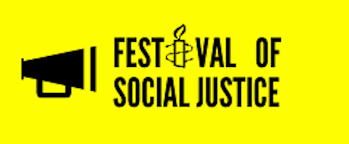
Meeting Ali Aarrass (stand-alone)
https://www.youtube.com/watch?

https://www.youtube.com/watch?
https://www.youtube.com/watch?
Pendant les dernières dix années de son calvaire carcéral, de la prison Botafuegos à Algeciras en Espagne jusqu’à la prison de Salé II et de Tiflit II au Maroc, Ali Aarrass est resté un homme digne, un homme debout. Si l’objectif était de le mettre à genoux, de l’effacer, de le faire plier sous la torture, par la violence et l’isolement total, ce fut raté.
Par sa persévérance, ses grèves de la faim, ses témoignages contre la torture, ses actions devant les justices belge, espagnole et marocaine, il a été et est toujours le moteur d’un large mouvement pour l’égalité et la justice.
De 2014 jusqu’à ce jour, Ali Aarrass a attaqué devant les tribunaux le non-respect des conventions internationales sur les droits de l’homme dans son affaire et la discrimination et le racisme d’État contre les citoyens binationaux belgo-marocains. Du fond de sa cellule, il a non seulement défié la Belgique, le Maroc et l’Espagne, mais aussi la peur, la soumission et le fatalisme qui règnent parmi nous, qui nous trouvons en liberté. En écrivant ces lignes, je me dis que, s’il y a une personne en Belgique qui mérite le prix de la défense des droits de l’homme, c’est bien Ali Aarrass.
Le Maroc, l’Espagne et la Belgique ont, à la fois conjointement et à leur manière, bafoué les droits fondamentaux d’Ali Aarrass, faisant de son affaire un des scandales judiciaires et politiques majeurs de cette dernière décennie.
Dans le chef de la Belgique et du Maroc, c’est l’histoire d’une parfaite entente sur le traitement discriminatoire de leurs citoyens binationaux respectifs.
Pendant toutes les années de la détention d’Ali Aarrass, la Belgique n’a à aucun moment envisagé sa protection consulaire ou humanitaire. De son côté, le Maroc n’a à aucun moment envisagé d’autoriser une protection consulaire belge, allant même jusqu’à lui refuser une assistance humanitaire belge. Ajoutons à cela que des avocats belges ne peuvent ni plaider au Maroc, ni rendre visite à leur client de nationalité belgo-marocaine.
Mais commençons par le début, commençons par les positions belges par rapport à l’Espagne, le pays qui a arrêté Ali Aarrass à Mellila le 1er avril 2008, à la demande du Maroc qui sollicitait son extradition.
La première confrontation : le refus belge d’une assistance à Ali Aarrass en Espagne
Dès son incarcération en Espagne en vue de son extradition, Ali Aarrass n’a pas cessé de clamer son innocence. Il entame trois grèves de la faim pour protester contre son incarcération et contre la demande d’extradition.
Dès le début de son incarcération, Ali sollicite une visite consulaire de son pays, la Belgique. Puis, la campagne contre l’extradition d’Ali, lancée en Belgique par le Comité Free Ali, en Espagne par Amnesty international et à Mellila par la Plataforma por Ali Aarrass, demande à la Belgique d’intervenir pour protéger son ressortissant.
Or, pendant les deux ans et demi de sa détention en Espagne, le consul belge en Espagne refuse de lui rendre visite. 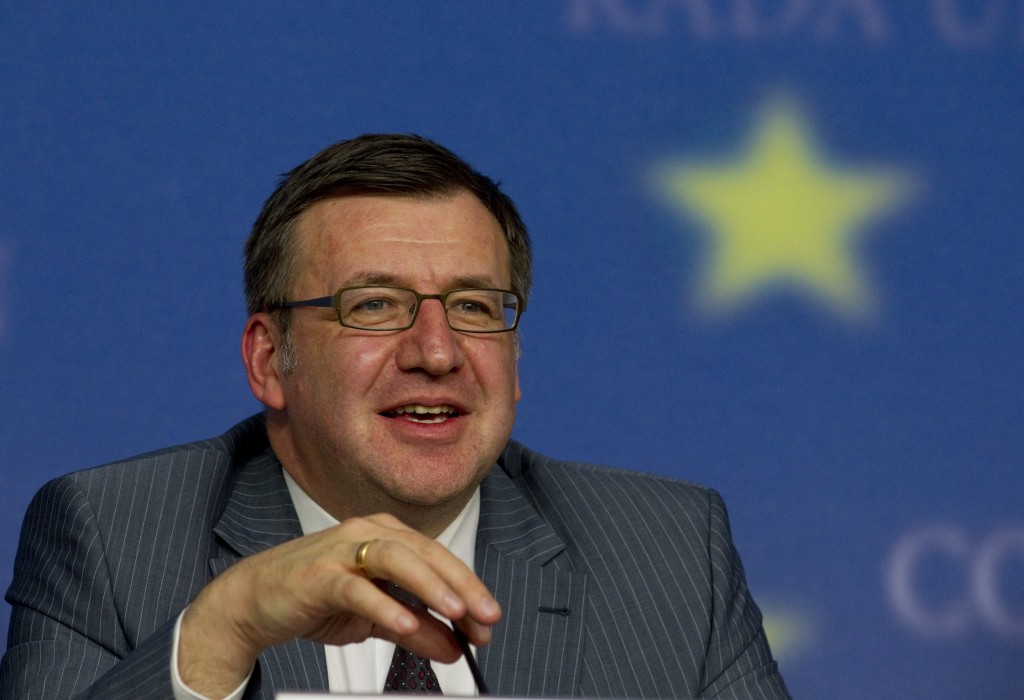 À l’interpellation de la députée Zoé Genot, le 29 novembre 2010, qui demande une intervention à Monsieur Vanackere (vice-premier ministre et ministre fédéral des Affaires étrangères et des Réformes institutionnelles de 2009 à 2011) auprès de l’Espagne pour vérifier la situation d’Ali Aarrass dans les prisons espagnoles et pour empêcher son extradition vers le Maroc, celui-ci répond : « Pour ce qui concerne votre question relative à une visite du consul, l’assistance aux Belges détenus à l’étranger ne prévoit pas l’organisation de visites consulaires dans les pays de l’Union européenne. » Un argument qui ne tient pas debout. Quand j’enseignais dans la prison de Saint-Gilles, je me suis adressé à l’ambassade des Pays-Bas à Bruxelles pour leur demander une visite chez des détenus néerlandais, arrêtés et condamnés en Belgique pour trafic de stupéfiants. Il ne me fallait pas argumenter, une visite dans la prison a bien eu lieu, sans que cela soit considéré comme une ingérence ou comme un manque de confiance dans le système judiciaire belge.
À l’interpellation de la députée Zoé Genot, le 29 novembre 2010, qui demande une intervention à Monsieur Vanackere (vice-premier ministre et ministre fédéral des Affaires étrangères et des Réformes institutionnelles de 2009 à 2011) auprès de l’Espagne pour vérifier la situation d’Ali Aarrass dans les prisons espagnoles et pour empêcher son extradition vers le Maroc, celui-ci répond : « Pour ce qui concerne votre question relative à une visite du consul, l’assistance aux Belges détenus à l’étranger ne prévoit pas l’organisation de visites consulaires dans les pays de l’Union européenne. » Un argument qui ne tient pas debout. Quand j’enseignais dans la prison de Saint-Gilles, je me suis adressé à l’ambassade des Pays-Bas à Bruxelles pour leur demander une visite chez des détenus néerlandais, arrêtés et condamnés en Belgique pour trafic de stupéfiants. Il ne me fallait pas argumenter, une visite dans la prison a bien eu lieu, sans que cela soit considéré comme une ingérence ou comme un manque de confiance dans le système judiciaire belge.
Mais pourquoi n’avez-vous pas évoqué le dossier Aarrass avec votre collègue espagnol ? lui demande Zoé Genot. Et le ministre de répondre : « Je n’ai pas évoqué le dossier d’extradition avec mon collègue espagnol car il n’est pas d’usage que la Belgique intervienne dans une procédure d’extradition entre pays tiers même lorsque cette dernière concerne un ressortissant national. De plus, j’ai entière confiance dans les garanties que le système judiciaire espagnol offre au niveau des procédures d’extradition et du respect des droits de l’homme. Il prévoit, en effet, des possibilités d’appel et ce, jusqu’au niveau de la Cour européenne des droits de l’homme en cas de non-respect de la Convention européenne des droits de l’homme. Vu ce qui précède, je n’entreprendrai pas de démarche qui pourrait être interprétée par mon collègue espagnol comme une ingérence dans des affaires internes et surtout comme un manque de confiance dans le système judiciaire espagnol. » Analysons cet argument de plus près. Disons d’abord que « l’entière confiance » du ministre dans le système judiciaire espagnol s’est avérée tout à fait relative. Quand, dix ans plus tard, il s’agit de la Catalogne, il n’est plus du tout question de confiance belge ou même européenne.[1] Et là, la Belgique ne se gêne pas pour intervenir et pour s’ingérer dans les affaires internes de l’Espagne, comme en témoignent les titres des journaux.[2] Une illustration de plus que nos autorités nous servent de grandes déclarations sur le respect et la confiance uniquement quand cela les arrange.
Ensuite, après une enquête minutieuse du juge antiterroriste Garzon, l’Espagne a innocenté Ali de toute implication dans une entreprise terroriste. C’est pour cette raison, que l’Espagne, tout en gardant Ali en prison, hésite pendant deux ans et demi à l’extrader.
Un non-lieu et une extradition qui n’a pas lieu pendant deux ans et demi… cela n’a pas pu échapper aux autorités belges, vu leur « entière confiance dans le système judiciaire espagnol ». L’Espagne va aussi remettre en liberté un Hispano-marocain, accusé des mêmes faits, sous la même demande d’extradition, et innocenté comme Ali. La seule raison pour garder Ali en prison, c’est qu’il est belge et pas espagnol.
Tout cela n’a en rien changé le refus de la Belgique de faire entendre sa voix et d’assurer un minimum de protection à son citoyen innocenté. Vanackere parlait de « la possibilité de s’adresser à la Cour européenne des droits de l’homme en cas de non-respect de la Convention européenne des droits de l’homme ». Ali et ses avocats ont saisi le Comité des Droits de l’Homme des Nations-Unies. Le 26 novembre 2010, ce Comité a demandé officiellement à l’Espagne de ne pas extrader Ali Aarrass vers le Maroc, en raison du risque sérieux et avéré qu’il y subisse de mauvais traitements. Là non plus, la Belgique n’a pas voulu saisir l’opportunité de se joindre à la demande du Comité.
Avec comme résultat que, le 14 décembre 2010, au moment où le conflit diplomatique et médiatique entre l’Espagne et le Maroc sur le Sahara occidental était à son comble, l’Espagne décide de ne pas respecter la demande du Comité des Droits de l’Homme. Elle procède à l’extradition forcée d’Ali, par avion de Madrid à Casablanca, sans même avertir les avocats d’Ali Aarrass ou sa famille.
Il y a un épilogue pervers et morbide à ce chapitre sur l’attitude de la Belgique en Espagne. Suite aux interpellations parlementaires en Belgique, à une intervention parlementaire de la part de députés britanniques contre son extradition, adressée à l’Espagne, aux démonstrations à répétition devant l’ambassade espagnole à Bruxelles, à la pétition, la conférence de presse, la soirée d’information et j’en passe, il y a eu une visite consulaire belge à Ali Aarrass. Oui, peu de gens le savent, mais il y a bel et bien eu une visite consulaire. Seulement, au moment de la visite du consul, la cellule d’Ali Aarrass à la prison de Madrid était vide. Parce que la visite a eu lieu le jour après son extradition vers le Maroc ! En lisant la position du ministre des Affaires étrangères Vanackere, on ne peut qu’en conclure que la visite consulaire belge a été délibérément organisée après son extradition. Une mise en scène élaborée uniquement pour sauver la face devant l’opinion publique et le mouvement de solidarité avec Ali.
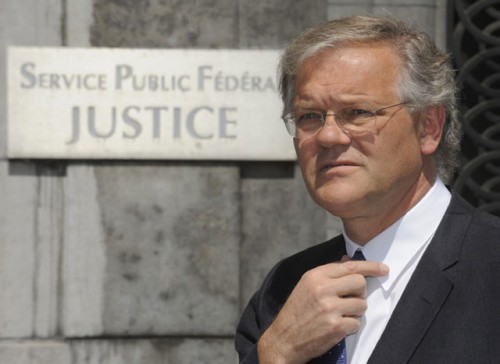 Le ministre de la Justice Stefaan De Clerck a fait preuve du même cynisme. Comme la question des extraditions relève de ses compétences, le Comité Free Ali s’était adressé à lui par mail. C’était le 1er décembre 2010, quinze jours avant l’extradition d’Ali Aarrass. La réponse du ministre arrive le 20 janvier 2011, soit presque deux mois plus tard, pour nous dire ce qu’on savait déjà depuis six semaines et se dégager de tout appel à l’aide. Parce qu’une fois au Maroc, le Belgo-marocain Ali Aarrass n’était plus son problème. Voici sa réponse : « Par la présente, j’accuse bonne réception de votre courrier du 1er décembre 2010 lequel a retenu toute mon attention. D’après les informations qui m’ont été transmises, j’ai le regret de vous communiquer que l’extradition de Monsieur Ali Aarrass de l’Espagne vers le Maroc a déjà eu lieu ».
Le ministre de la Justice Stefaan De Clerck a fait preuve du même cynisme. Comme la question des extraditions relève de ses compétences, le Comité Free Ali s’était adressé à lui par mail. C’était le 1er décembre 2010, quinze jours avant l’extradition d’Ali Aarrass. La réponse du ministre arrive le 20 janvier 2011, soit presque deux mois plus tard, pour nous dire ce qu’on savait déjà depuis six semaines et se dégager de tout appel à l’aide. Parce qu’une fois au Maroc, le Belgo-marocain Ali Aarrass n’était plus son problème. Voici sa réponse : « Par la présente, j’accuse bonne réception de votre courrier du 1er décembre 2010 lequel a retenu toute mon attention. D’après les informations qui m’ont été transmises, j’ai le regret de vous communiquer que l’extradition de Monsieur Ali Aarrass de l’Espagne vers le Maroc a déjà eu lieu ».
Le « principe » de la non-assistance consulaire belge aux binationaux belges au Maroc
L’extradition au Maroc en décembre 2010 fut suivie d’un long silence d’un mois. Ali avait disparu. Personne n’était informé de son lieu de détention. Il n’avait pas accès aux services d’un avocat. Farida Aarrass s’adresse alors au ministre des Affaires étrangères, lui demandant de s’informer auprès des autorités marocaines sur la situation de son frère afin de savoir où il se trouve. En réponse à son email, le ministre répond : « Je vous confirme que la position en matière d’aide consulaire aux bipatrides est de ne pas intervenir auprès des autorités locales du pays de leur autre nationalité. Comme Ali Aarrass est considéré comme de nationalité marocaine par les autorités marocaines, nos services ne les contacteront donc pas pour votre frère ».
Cette position sera répétée pendant des années. Ali, de son côté réapparaît le 18 janvier 2011, lorsqu’il est présenté au juge d’instruction, assisté de son avocat. Sorti de dix jours de torture, Ali décide de porter plainte du chef de torture, non seulement au Parquet mais également auprès du ministre de la Justice et du Conseil National des Droits de l’Homme.
 Cela ne change en rien la position de la Belgique. Ainsi, le 7 mars 2012, en réponse à une nouvelle question de la parlementaire fédérale Zoé Genot à la commission des Relations extérieures, le nouveau et actuel ministre des Affaires étrangères, Didier Reynders, répond : « Nous n’intervenons jamais pour un binational sur le territoire d’un pays dont il possède la nationalité. La Belgique applique ce principe qui a été confirmé entre autres par la Convention de La Haye du 12 avril 1930 concernant certaines questions relatives au conflit de loi sur la nationalité, stipulant qu’un État ne peut exercer sa protection diplomatique au profit d’un de ses nationaux à l’égard d’un État dont celui-ci est également le ressortissant national. Et la Belgique a signé cette convention. Ce principe est appliqué sans discrimination pour tous les détenus de double nationalité. Le même principe est bien entendu appliqué sur le territoire belge ». Un an plus tard, le 20 février 2013, même réponse – mot pour mot – de Reynders à la demande de recevoir la famille Aarrass : « Je ne peux que vous confirmer que le Service Public Affaires étrangères n’intervient pas pour un binational sur le territoire d’un pays dont il possède la nationalité. Ce principe est appliqué sans discrimination pour tous les détenus de double nationalité. Je n’estime donc pas opportun d’organiser une rencontre concernant ce dossier ». Et dans une lettre à l’ambassade de la Belgique à Rabat du 5 août 2013, Didier Reynders écrit : «… Je confirme le principe que les ambassades belges s’abstiennent d’accorder la protection consulaire à des personnes ayant la double nationalité ».
Cela ne change en rien la position de la Belgique. Ainsi, le 7 mars 2012, en réponse à une nouvelle question de la parlementaire fédérale Zoé Genot à la commission des Relations extérieures, le nouveau et actuel ministre des Affaires étrangères, Didier Reynders, répond : « Nous n’intervenons jamais pour un binational sur le territoire d’un pays dont il possède la nationalité. La Belgique applique ce principe qui a été confirmé entre autres par la Convention de La Haye du 12 avril 1930 concernant certaines questions relatives au conflit de loi sur la nationalité, stipulant qu’un État ne peut exercer sa protection diplomatique au profit d’un de ses nationaux à l’égard d’un État dont celui-ci est également le ressortissant national. Et la Belgique a signé cette convention. Ce principe est appliqué sans discrimination pour tous les détenus de double nationalité. Le même principe est bien entendu appliqué sur le territoire belge ». Un an plus tard, le 20 février 2013, même réponse – mot pour mot – de Reynders à la demande de recevoir la famille Aarrass : « Je ne peux que vous confirmer que le Service Public Affaires étrangères n’intervient pas pour un binational sur le territoire d’un pays dont il possède la nationalité. Ce principe est appliqué sans discrimination pour tous les détenus de double nationalité. Je n’estime donc pas opportun d’organiser une rencontre concernant ce dossier ». Et dans une lettre à l’ambassade de la Belgique à Rabat du 5 août 2013, Didier Reynders écrit : «… Je confirme le principe que les ambassades belges s’abstiennent d’accorder la protection consulaire à des personnes ayant la double nationalité ».
Comme vous le pouvez constater, la Belgique a érigé en principe la non-assistance consulaire aux binationaux. Elle a ainsi érigé en principe la discrimination d’une partie de sa population.
Après la victoire historique d’Ali Aarrass sur la protection consulaire, la Belgique et le Maroc contre-attaquent
La Belgique sera obligée de reculer sur son principe de discrimination et de racisme d’État après une victoire historique d’Ali Aarrass devant les tribunaux belges. En 2014 en effet, Ali et ses avocats obtiennent du tribunal en première instance à Bruxelles d’abord et en appel ensuite, l’obligation pour la Belgique de lui fournir l’assistance sollicitée. C’est une victoire historique. Une victoire qui n’a pas été célébrée à sa juste valeur par le mouvement antiraciste. Par contre, la Belgique et le Maroc ont bien compris l’importance de ce jugement. La Belgique n’abandonne pas un combat dont l’enjeu est trop important. Elle continue à s’opposer à ce jugement et se pourvoit en cassation. Entretemps, dans sa demande d’autorisation d’une assistance consulaire au Maroc du 4 mars 2014, ordonnée par le tribunal, elle stipulera clairement qu’elle n’est pas d’accord de faire cette demande, mais qu’elle y est obligée et qu’elle attend la suite de la procédure judiciaire. Ainsi l’ambassade belge à Rabat écrit le 4 mars 2014 au ministère des affaires étrangères au Maroc que « la demande (d’assistance consulaire au Maroc) et la communication qui en résulterait… laissent entièrement inaffectée sa position juridique sur le plan international concernant l’exercice de l’assistance consulaire en faveur de binationaux. » Le 11 mars 2014, l’affaire Ali Aarrass et le pourvoi en appel sont discutés lors d’une rencontre entre la Belgique et le Maroc. Il ressort de cette réunion « … Que les autorités marocaines ne souhaitent pas voir se créer un précédent, la question de la possible condamnation de l’État belge en appel (procédure belge) et de ses suites jurisprudentielles se posant alors… ».
À partir de 2016, les initiatives pour briser Ali Aarrass vont se suivre.
Le 28 juin 2016, deux ans (!) après la réception de la demande belge du 4 mars 2014, le Maroc envoie sa réponse, refusant une visite consulaire belge à Ali Aarrass, « détenu dans le cadre d’une affaire de terrorisme et de radicalisme ». Reynders y réagit le 16 août 2016 en disant que cette réponse « … a le mérite de nous fournir une réponse claire… », et à une autre occasion que la réponse était tout à fait normale et conforme aux accords et pratiques internationaux.
Le 10 octobre 2016, les autorités pénitentiaires marocaines décident de transférer Ali de la prison de Salé II à la prison de Tiflet II où il sera enfermé en isolement total. Un isolement prolongé qui, pour Amnesty international « s’apparente à la torture ou à d’autres peines ou traitements cruels, inhumains ou dégradants au titre des Règles Nelson Mandela ». Le Comité contre la Torture (CAT) de l’ONU, saisi par les avocats d’Ali, ordonne que « le régime pénitentiaire de Ali soit allégé et ses droits garantis ». Le Maroc ne réagit pas et continue sa détention solitaire jusqu’à ce jour.
En avril 2017, la Cour de cassation au Maroc rejette le pourvoi en cassation d’Ali Aarrass introduit en 2012.
Le 21 juin 2017, le Ministère des Affaires étrangères et de la Coopération du Maroc refuse la demande belge d’une « visite à caractère strictement humanitaire ».
Le 29 septembre 2017, la Cour de Cassation en Belgique casse les arrêts en faveur d’Ali Aarrass de 2014 et donne raison à la Belgique.
Sur ce, Ali Aarrass et ses avocats saisissent la Cour européenne des droits de l’homme pour violation des articles 1er et 3 de la Convention.
Et ce n’est pas fini.
En 2018, pour couper court au combat d’Ali pour obtenir la protection de la Belgique et pour les droits égaux des binationaux, la Belgique fait inscrire la non-protection des citoyens binationaux dans une nouvelle loi. Sur proposition des ministres Reynders et Geens, le 9 mai 2018, une nouvelle loi modifiant la protection consulaire enlève, par la loi (!), toute protection consulaire belge aux citoyens belges ayant une double nationalité, une fois qu’ils se trouvent dans le pays de leur deuxième nationalité. Le nouvel article 11 du code consulaire dit ceci : « Il est inséré un article 79 : Ne peuvent prétendre à l’assistance consulaire les Belges qui possèdent aussi la nationalité de l’État dans lequel l’assistance consulaire est demandée, lorsque le consentement des autorités locales est requis ».
Ali Aarrass et ses avocats décident alors de saisir la Cour constitutionnelle de cette question, en espérant que cette dernière sanctionnera ce racisme d’État.
Notes
[1] Sur la situation des droits de l’homme en Espagne lire aussi : http://www.freeali.be/a-lattention-de-lancien-ministre-van-ackere-on-torture-en-espagne/
[2] . « Charles Michel, seul chef de gouvernement européen à condamner la violence en Catalogne » https://www.rtbf.be/info/belgique/detail_le-premier-ministre-charles-michel-premier-dirigeant-europeen-a-condamner-la-violence-en-catalogne?id=9724111 ; « Belgique : l’affaire catalane envenime les relations avec Madrid « , https://www.courrierinternational.com/article/belgique-laffaire-catalane-envenime-les-relations-avec-madrid ou « La justice belge refuse d’extrader le rappeur espagnol Valtonyc vers Madrid » https://www.liberation.fr/direct/element/la-justice-belge-refuse-dextrader-le-rappeur-espagnol-valtonyc-vers-madrid_87381/
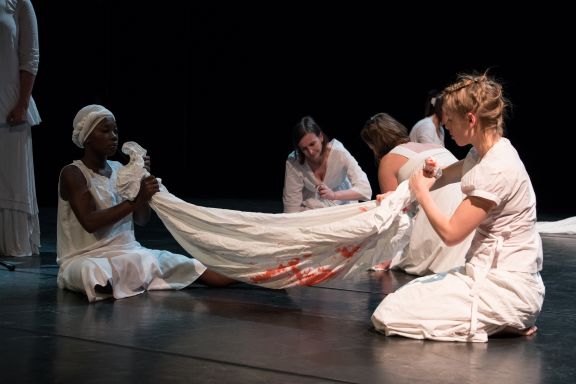 Au Théatre national Boulevard Emile Jacqmain, 111-115 1000 Bruxelles
Au Théatre national Boulevard Emile Jacqmain, 111-115 1000 Bruxelles
Calendrier : Mardi 23.04.2019 20:15 Grande Salle / Mercredi 24.04.2019 19:30 Grande Salle / Jeudi 25.04.2019 20:15 Grande Salle / Vendredi 26.04.2019 20:15 Grande Salle / Samedi 27.04.2019 20:15 Grande Salle
The Junior Urgent Action is designed for our youngest activists aged 7-11.
March 2018’s issue focuses on the case of Ali Aarrass who has been tortured, kept in solitary confinement and given an unfair trial.
Download the action below to find out how you can show solidarity with Ali through messages of hope and encouragement.
Are you aged 7-11? Join our Junior Urgent Action Network and receive twice termly cases adapted for our youngest activists.
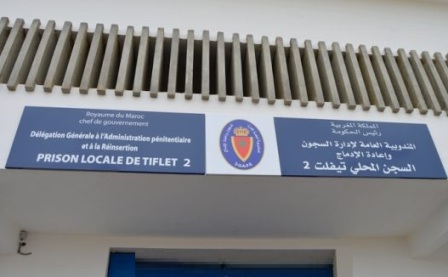 The Moroccan Court of Cassation dismissed Ali’s appeal.
The Moroccan Court of Cassation dismissed Ali’s appeal.
This is devastating news. Ali’s lawyers are considering with the international secretariat of Amnesty International what the next steps should be.
The Moroccan authorities continue to ignore the rulings and demands of international bodies such as the UN Committee Against Torture which called on them again recently to respect his fundamental rights by putting an end to his solitary confinement and to the prison conditions which have severely damaged his physical and mental health.
Throughout his imprisonment, he has suffered threats, pressure, unjustified searches and seizures, beatings, deprivation of basic medical care, interference with correspondence, restrictions on visits from friends and lawyers. Since October last year he has been in solitary confinement with inadequate food and bedding, and no medical care despite his repeated sickness and vomiting, causing him to lose 18kg in weight.
The Belgian authorities too have ignored the demands of his family and of human rights groups to come to his aid, despite his Belgian nationality.
If you would like to write to Ali (preferably in French or Spanish, but English would do), so that he knows people are thinking of him, his address is:
Ali Aarrass (no. d’ecrou 930)
Prison de Tiflet 2
Tiflet
Morocco
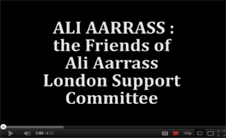 Dear supporters of Ali Aarrass,
Dear supporters of Ali Aarrass,
On 24 September, two new books were launched in Brussels, at a reception attended and addressed by poets and writers, human rights and anti-racist activists, parliamentarians and lawyers.
Je m’appelle Ali Aarrass (‘My name is Ali Aarrass’) is a cartoon documentary, telling Ali’s story in words and pictures. The other book, Lettres de prison d’Ali Aarrass & Journal d’une grève de la faim de Farida Aarrass’, comprises Ali’s letters from prison and his sister Farida’s diary of Ali’s hunger strike.
We need to publicise these books here, in order to raise money for the continuing legal costs and to keep up the pressure for Ali’s release. Perhaps we can co-organise an event with a prisoners’ group here in the UK, or an anti-torture group. Does anyone have any ideas, any contacts who could help us with this?
Ali has been in prison for a total of eight and a half years. He is still waiting for the appeal submitted to the Cassation Court over three years ago to be listed for hearing, and for the Belgian consul to visit him in accordance with the Belgian court order upheld by the appeal court two years ago.
Please get in touch if you can help publicise these two books or if you have ideas on how and with whom we can do it.
Thanks.
Frances Webber
London Support Ali Aarrass <londonaliaarrass@gmail.com>
14 December 2015 marked the fifth anniversary of Ali’s unlawful extradition by Spain to Morocco. The date was marked by Amnesty International (Belgium) handing in a 10,000-signature petition to the Moroccan ambassador to Belgium, and also by a broadcast on RiveWest a webradio run by residents of the Molenbeek district of Brussels (see Liz Fekete’s article on policing and media coverage of the district here).
Members of the campaign to free Ali gathered the following day, 15 December, outside the Radisson Hotel, where Belgian foreign minister Didier Reynders was being wined and dined by the US Chamber of Commerce, to show Reynders the meal given to prisoners in Sale II, the notorious prison where Ali is held, and to demand that Belgium comply with the court order to give Ali consular assistance. Supporters kept up the pressure in the new year, with a picket of another expensive dinner attended by Reynders on 6 January. (The Free Ali website has details.)
Meanwhile, Amnesty International UK is asking its supporters to write to their MEPs this month or next about disrespect of human rights in Morocco, with a particular focus on Ali’s case and that of Wafae Charaf and Oussama Housne. They have asked whether Ali’s supporters in the UK can do the same. I circulate their appeal below.
If you can do so, ask your MEP to write to the Mission of the Kingdom of Morocco to the European Union expressing your concern. You could even ask for a meeting with your MEP to discuss it. You can find your MEP by going to www.europarl.org.uk/en/ your-meps.html. Click on your geographical region and this will then take you to a list of the MEPs for that region with their contact details. Please particularly target MEPs who are on the Civil Liberties, Justice and Home Affairs and Foreign Affairs committees.
In order that you can brief your MEP, the details of the cases are set out below. (In Ali’s case you may recall much of what follows but a reminder may be useful.)
Thank you.
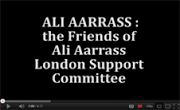 Frances Webber
Frances Webber
London Friends of Ali Aarrass
Ali Aarrass is a 53-year-old Belgian-Moroccan national who used to run a bookshop in Brussels and later a cafe in Melilla. On 14th December 2010, the Spanish authorities extradited Ali to Morocco, where (despite being a citizen) he had never lived. The extradition was in breach of a stay requested by the UN Human Rights Committee and ignored warnings from Ali’s family, lawyers and supporters and from Amnesty International that Ali would be at risk of incommunicado detention, torture and unfair trial.
In Morocco, Ali was held incommunicado for 12 days and brutally tortured in a secret detention centre run by the General Directorate for the Surveillance of the Territory (Direction generale de la surveillance du territoire, DST) in Temara. He was beaten on the soles of his feet, given electric shocks to his testicles, suspended from his wrists and burned with cigarettes. On 19th November 2011, solely on the basis of a « confession » extracted under torture (and written in Arabic, a language he does not understand), he was convicted of participating in and procuring arms for a criminal group known as the « Belliraj Network ». He was sentenced to 15 years in prison which was reduced to 12 years on appeal. Ali has always maintained his innocence.
In September 2012, the UN Special Rapporteur on Torture, Juan Mendez, and an independent forensic doctor, visited Ali in detention and confirmed his torture claims.
In July 2014, the UN Human Rights Committee condemned Spain for its extradition of Ali. The Committee found as a fact that Ali had been tortured, and that the Spanish authorities had not properly assessed the risk of torture before extraditing him. They said that Spain’s treatment of Ali violated Article 7 of the International Covenant for Civil and Political Rights, which bans exposure to torture or inhuman or degrading treatment. Spain was asked to award Ali adequate compensation and to take all possible measures to work with the Moroccan authorities to ensure that he was well treated. In 2015, the Committee Against Torture also expressed concern about the extradition and called on Spain to investigate Ali’s torture allegations.
In January 2014, the UN Working Group on Arbitrary Detention named Ali as someone who had been convicted solely on the basis of torture evidence and called on the Moroccan authorities to reform the penal code to prevent reliance on such evidence. It asked for Ali’s immediate release with compensation for his detention.
In February 2014, the Brussels High Court ruled that the Belgian authorities are under a duty to provide Ali with consular assistance. Their ruling was upheld by the Belgian Court of Appeal on 9 September 2014, and the Belgian authorities are appealing this decision before the Court of Cassation.
On 19th May 2014 the UN Committee Against Torture found that the Moroccan authorities violated several articles of the Convention Against Torture with regard to Ali and called on them to investigate and report to the Committee within 90 days. Ali had two meetings with an Investigative Judge and in November 2014 he underwent a medical examination over several days without an independent monitor present. Ali’s lawyers have yet to receive the report of his medical examination, and have said that they were not aware that any witnesses were questioned or that any locations identified by Ali were searched.
Ali has undertaken several hunger and/ or thirst strikes, coming close to death on occasions and permanently impairing his health, in protest against his continuing imprisonment and the reprisals and ill-treatment he has suffered in Sale II prison for publicising his case. Most recently, in August 2015 Ali went on hunger strike to protest about fresh improper treatment by the head guard in his prison block, significant delays in the investigation carried out by the judicial authorities into his torture allegations, and the failure of the Court of Cassation, Morocco’s highest court, to list his appeal, nearly three years after his appeal against conviction was lodged. On 29 September 2015, he said that several men came to search his cell, without identifying themselves, although some were wearing green uniforms and others civilian clothes. They threw him to the floor, causing him severe pain, and kicked him and shouted at him when he asked to see a doctor. He said that they filmed the search, which lasted over two hours, and destroyed his personal belongings off-camera. His family believe that this was in retaliation for Ali having reported being tortured in 2010, as well as the international public campaign calling for his release.
Ali suspended his hunger strike on 4th November 2015 as his health was failing. Amnesty International heard in November 2015 that the investigation into Ali’s allegations of torture had been closed. Ali’s lawyers were informed of the decision as they attempted to bring a civil action and were told that this was not possible, because the investigation had been closed. They have had no access to the decision but understand that the case was dismissed.
Our calls are: that the Moroccan authorities must ensure that Ali is protected from further ill-treatment and is treated humanely; that they must order a prompt, independent and impartial investigation into the ill-treatment that Ali suffered on 29 September, and hold those responsible to account; and must implement the decision of the Working Group on Arbitrary Detention, ie, release Ali immediately and give him adequate compensation.
Wafae Charaf (28) and Oussama Housne (23) are both considered by Amnesty International to be prisoners of conscience and AI is campaigning for their release. Wafae and Oussama are currently imprisoned in separate prisons in Morocco on charges of slander and false allegations of torture. Wafae reported to Amnesty International that she was abducted after attending a workers protest in Tangiers, Morocco in April 2014, where she was tortured by a group of men who threatened further violence if she continued with her activism.
After filing a report with the authorities an investigation was launched, however, rather than the perpetrators being arrested Wafae ended up in prison charged with “falsely reporting torture.” On August 12, 2014 she was sentenced to a year in prison and ordered to pay a fine of 1,000 Moroccan Dirhams (66 GBP) for slander and “falsely reporting torture” and to pay an additional 50,000 Dirham (3,330 GBP) to the Moroccan police department for slander, even though she never named the department in her accusations. Since her initial trial, and during the appeal process, Wafae’s sentence has been increased by a further year.
In a mirroring case, Oussama House was abducted after leaving a protest in May of 2014 where he was tortured by a group of men via burning with a heated metal rod and raping him with their fingers. Oussama publicised this incident on his YouTube channel with the goal of having the Moroccan authorities investigate his abuse. However, he was subsequently arrested after they claimed his allegations were not truthful and he had lied about his torture.
On the 23rd of July Oussama, like Wafae, was imprisoned on charges of “falsely reporting torture” and slander, however, he was handed a three year sentence. Oussama was also ordered to pay 100,000 Dirham (6,660 GBP) to the Moroccan police for slander, even though again like Wafae, he had never named the police in any of his allegations.
17-12-2015
In a letter sent to the Moroccan Minister of Justice and Liberties, the IRCT is urging the Government of Morocco to release all medical documents pertaining to Ali Aarrass, who has been a prisoner in Morocco since 2010.
The letter also calls on an independent, thorough and transparent investigation into the treatment of Mr Aarrass while in the custody of the police and prison services in Morocco. Mr Aarrass alleges that he was subjected to torture and various forms of inhuman and degrading treatment while in prison – an allegation that is supported by medical examinations carried out by an independent forensic expert.
The IRCT’s involvement with Mr Aarrass goes back to 2012 when the Moroccan authorities provided Mr Aarrass with a medico-legal evaluation in order to assess the allegations of torture and ill-treatment. An expert from the IRCT’s Independent Forensic Expert Group (IFEG) produced a thorough and substantial criticism of the procedures and the findings of the Moroccan medico-legal evaluation. The forensic expert concluded that the report did not meet Istanbul Protocol standards and recommended that a new medical and psychological examination be conducted in accordance with the Istanbul Protocol.
Mr Aarrass was subsequently provided a second series of medical and psychological evaluations in November 2014. His legal counsel has informed the IRCT that despite repeatedly requesting the medical files from the second evaluation, the investigating judge dismissed the requests on procedural grounds. His legal counsel have asked the IRCT to assess whether the second medico-legal report meets Istanbul Protocol standards. However, the IRCT is unable to perform this assessment as Mr Aarrass and his legal counsel have been refused access to this medico-legal report.
The UN Special Rapporteur on torture and other cruel, inhuman or degrading treatment or punishment, Juan Mendez, visited Mr Aarrass in September 2012 with an independent forensic expert who examined Mr. Aarrass and confirmed that Mr Aarrass’ account of torture was consistent with the medical examinations. Furthermore, the UN Committee against Torture adopted a decision, noting that the Moroccan government had violated article 2, paragraph 1, and articles 11, 12, 13 and 15 of the UN Convention against Torture.
The IRCT letter attached the Expert Statement “On the Right of Access” to relevant medical records that was issued by IFEG and published in the peer-reviewed journal Torture. The Expert Statement details the relevant international standards for the investigation of allegations of torture and highlights the importance of access to medical documentation to that end.
As one of the initiators of the global Convention against Torture Initiative, which aims for universal ratification and implementation of the Convention against Torture by 2024, it is incumbent on the Moroccan Government to demonstrate leadership on the implementation of the Convention and to ensure that national laws, policies and procedures provide for strong safeguards against torture and ill-treatment.
Members of the London Support Group for Ali Aarrass were joined by representatives of Amnesty International at a demonstration for Ali outside the Moroccan Embassy in London on 28 October, calling on the Moroccan government to free Ali.
We were able to hand in a document setting out Ali’s five demands, but neither the ambassador, Princess Lalla Jamoula Alaoui, nor her political counsellor Zineb Bentahla, nor any member of the diplomatic staff were able to receive a delegation.
In fact security officials called the police, with whom, when they arrived – two members of the diplomatic protection unit on motorbikes with blue lights blazing – we had a friendly word.
Frances Webber, London Support Group of Ali Aarrass
(fr) Des membres du groupe de soutien de Londres pour Ali Aarrass et des responsables d’Amnesty International ont appelé le gouvernement marocain à libérer Ali lors d’une manifestation pour Ali devant l’ambassade du Maroc à Londres le 28 octobre.
Nous avons pu remettre un document avec les cinq demandes d’Ali , mais ni l’ambassadeur, ni la Princesse Lalla Jamoula Alaoui , ni son conseiller politique Zineb Bentahla , ni aucun autre membre du personnel diplomatique ont voulu recevoir une délégation .
Les responsables de la sécurité ont appelé la police. Quand ils sont arrivés – deux membres de l’unité de la protection diplomatique sur des motos avec des lumières bleues flamboyantes – nous avons eu avec eux un entretien aimable.
Friends of Ali Aarrass
London Support Committee
……………………………………………………………………………………………………
Guy Trouveroy
Ambassador of Belgium in the UK,
17, Grosvenor Crescent
London SW1X 7EE
15 October 2015
By email to London@diplobel.fed.be and by post
Your Excellency,
We are writing to ask you to convey to your government our grave concern about the condition of Ali Aarrass, the dual Belgian/ Moroccan national imprisoned in Salé II prison since his conviction in November 2011 on evidence obtained by torture.
On 25 August 2015 M. Aarrass embarked on hunger strike in protest against continued bullying, humiliation and mistreatment at the hands of prison staff. Since then, his situation has become even worse, with Amnesty International issuing an Urgent Action in respect of reports from his family that he was severely beaten on 29 September by several men, some in green uniforms, others in plain clothes, during a cell search.
M. Aarrass is calling for his release, two years after the UN Working Group on Arbitrary Detention called on the Moroccan authorities to release him immediately, following its conclusion that he had been convicted solely on the basis of “confessions” extracted under torture. He is also protesting against the significant delays in the investigation carried out by the judicial authorities into his torture allegations, as well as the Court of Cassation’s failure to make a decision in his case nearly three years after submitting his appeal against his conviction to the court.
You will be aware that in September 2014 the Belgian Court of Appeal rejected your government’s appeal against the High Court’s ruling that it was obliged to offer diplomatic assistance to M. Aarrass, as a Belgian national, since the Moroccan government was not a party to the Hague Convention which precludes the provision of protection to dual nationals against the authorities of their other nationality, and because of the fundamental human rights engaged by M. Aarrass’ case – protection from inhuman or degrading treatment or torture and the right to physical and psychological integrity. It is highly regrettable that your government appears to have taken no effective action to protect its national M. Aarrass since the Court of Appeal’s ruling, and has instead appealed the Court’s ruling, while allowing him to remain incarcerated in intolerable conditions (according to authoritative rulings from UN human rights bodies).
We urge your government to intervene to protect M. Aarrass from further ill-treatment, and to ensure that he is treated in accordance with humanitarian norms. This would of course be entirely without prejudice to your legal position that you are under no binding obligation to do so – a position maintained by the minister M. Reynders in August 2013 when, during M. Aarrass’ almost fatal hunger and thirst strike, he was prevailed on to intervene with the Moroccan authorities.
Yours sincerely,
Kate Allen, Director, Amnesty International (UK)
Smita Bajaria, Solicitor
Professor Gargi Bhattacharyya, University of East London
Professor Sir Geoffrey Bindman QC
Naima Bouteldja, Freelance journalist
Professor Bill Bowring, School of Law, Birkbeck College, University of London
Professor Emeritus Lee Bridges, School of Law, University of Warwick
Victoria Brittain, Author and journalist
Dr Eddie Bruce-Jones, School of Law, Birkbeck College, University of London
Louise Christian, Solicitor
Committee on the Administration of Justice, Belfast
Helen Curtis, Barrister
Liz Davies, Barrister
Liz Farrell, Solicitor
Liz Fekete, Director, Institute of Race Relations
Daniel Furner, Solicitor
Omar Geloo, Solicitor
Professor Avery Gordon, University of California Santa Barbara
Professor Penny Green, School of Law, Queen Mary University of London
Richard Harvey, Barrister
Trevor Hemmings, Researcher
Michael House, Barrister
Catriona Jarvis, former Judge Upper Tribunal
Professor Mark McGovern, Edge Hill University
Dr Thomas Macmanus, School of Law, Queen Mary University of London
Professor Philip Marfleet, University of East London
Piers Mostyn, Barrister
Terry Munyard, Barrister
Greg O’Ceallaigh, Barrister
Beth O’Reilly, Barrister
Peter Pelz, Director, Soul of Europe
Collin Prescod, Film maker, Chair, Institute of Race Relations
Revd. Donald Reeves, Director, Soul of Europe
David Renton, Barrister
Ronan Toal, Barrister
Anthony Vaughan, Barrister
Frances Webber, Barrister, Vice-chair, Institute of Race Relations
Marc Willers QC, Barrister